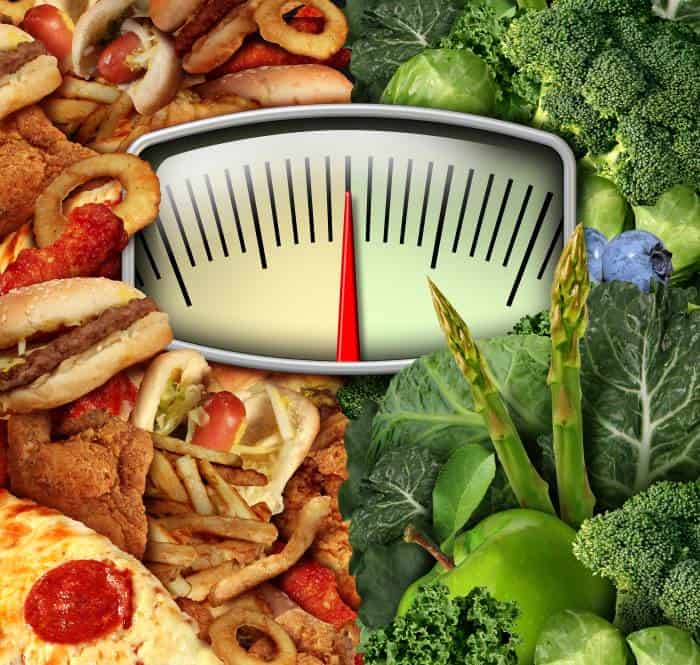Find out your calorie intake to lose weight with a simple calculation. It’s only possible to lose fat if you expend more calories than you consume per day.
There’s no other way around it; you need a caloric deficit to lose weight and fat. If you can’t abide by this simple rule, then you can say “bye-bye” to your dreams of a six pack and “hello” to a future of fat rolls! 😀
Fortunately, that won’t be the case since I’ll tell you exactly how to calculate your calorie intake to lose weight.
Once you find how many calories to eat to lose weight, you are guaranteed to see results if you stay consistent with you fat loss plan.
In simpler, mathematical terms, you can only lose weight if…
Calories In < Calories Out
How to Calculate Your Calorie Intake to Lose Weight
To lose weight, a good estimate of proper caloric intake is…
Bodyweight in lbs x 12 calories/lb
Example: 170 lbs x 12 calories/lb = 2040 calories per/day
12 calories per pound of bodyweight is not a magic number for everyone. But it is a highly accurate estimate for most people. Think of it as a starting point; you may well have to increase or decrease your calorie intake to lose weight.
Optional…
…If you want to attempt to get a somewhat more accurate calculation of the calories required for you to lose weight, then you can consider using the range of:
Bodyweight in lbs x 10-13+ calories/lb
Consider the following when estimating where you fall within the range of 10-13+:
- Activity. The more active you are, the closer to 13+ you will be; the more sedentary you are, the closer to 10 you will be.
- Metabolism. The faster your metabolism, the closer to 13+ you will be; the slower your metabolism, the closer to 10 you will be.
- Males tend to have faster metabolisms than females
- Younger people tend to have faster metabolisms than older people
- Consistent weight training increases your metabolic rate
There aren’t any 100% accurate methods for pinpointing exactly what your calorie intake to lose weight is…
So whether you make your estimation using 12 calories/lb or using 10-13+ calories/lb, chances are you will still have to do some adjusting to ensure that you’re losing fat at an acceptable rate.
- Losing Weight Too Slowly? Decrease your calorie intake to lose weight by 10% if you have not lost more than 0.5 pounds after a week.
- Losing Weight Too Quickly? Increase calories by 10% if you have lost more than 3 lbs (and seen significant strength decreases) after the first week.
As You Progress…
Note that you must further decrease calories as you continue to lose weight in order to avoid plateauing.
As fat loss results begin to diminish significantly, try decreasing calories by 10% to rejuvinate your progress. Again, the key is to do this without a major and sudden disruption in strength or energy levels.
Fat Loss: The Big Picture
Although this page is all about calorie intake, you must also consider the other essential aspects of a successful fat loss diet plan; most importantly, sufficient intake of protein and other macronutrients (see muscle building foods).
In addition, there is no better way to accelerate fat loss and preserve muscle mass than working out with a quality weight lifting routine.


